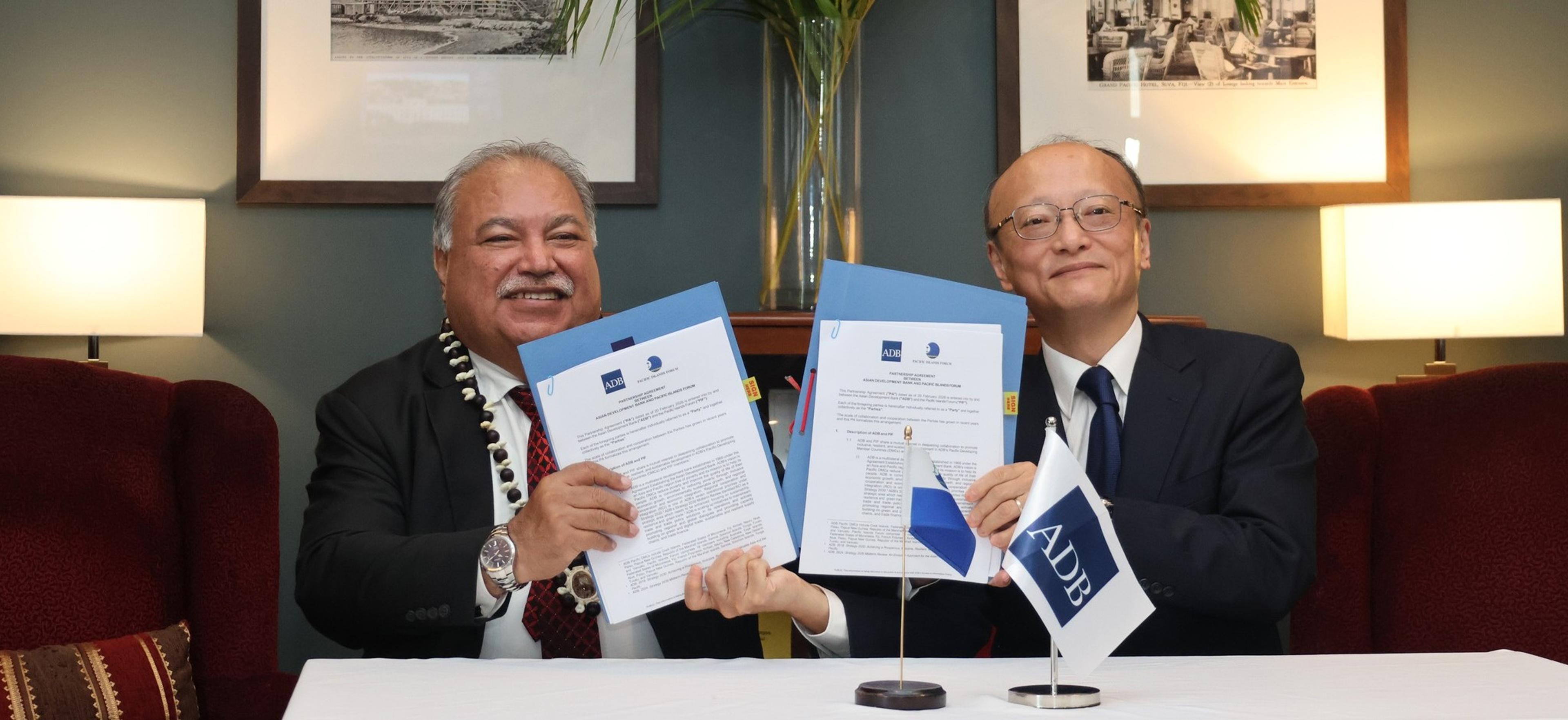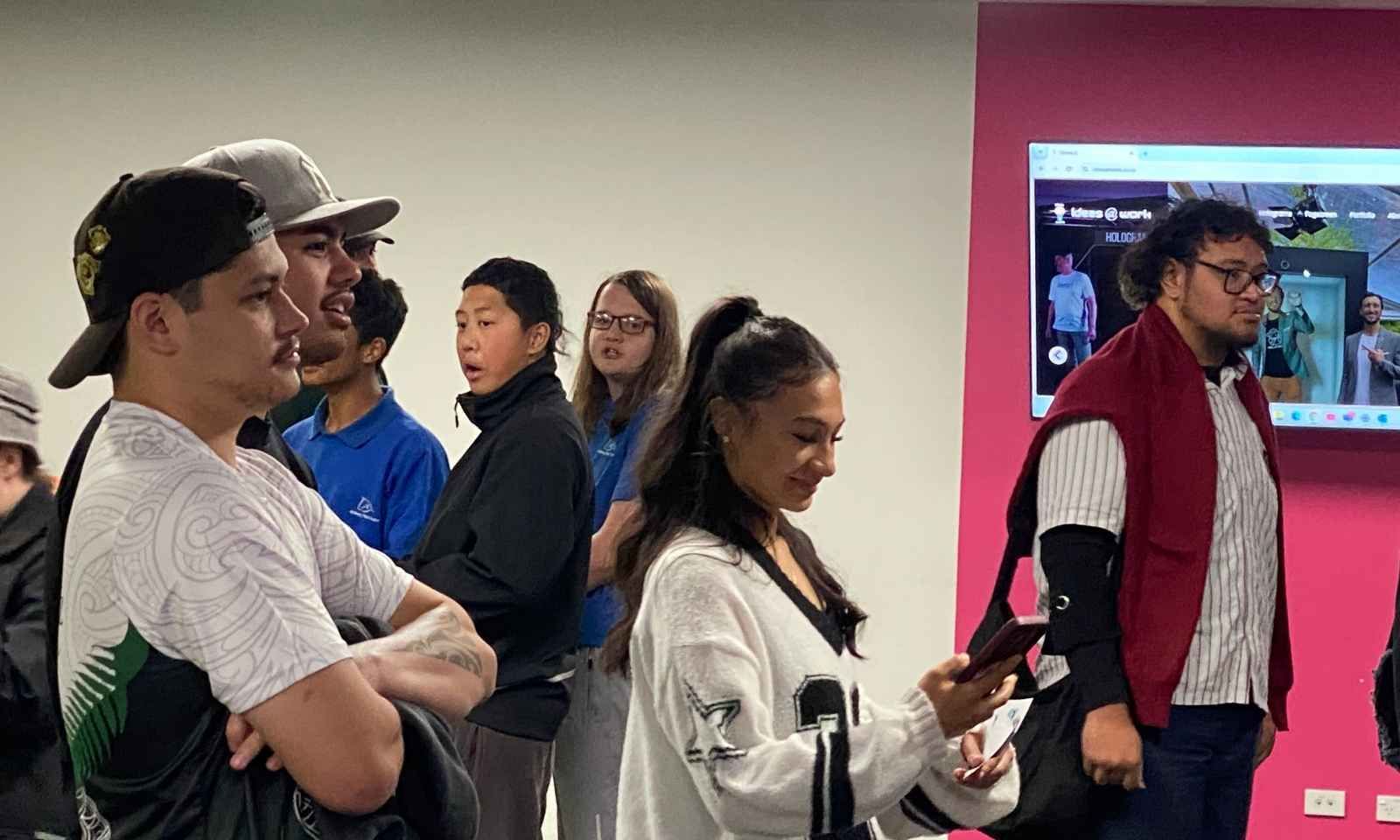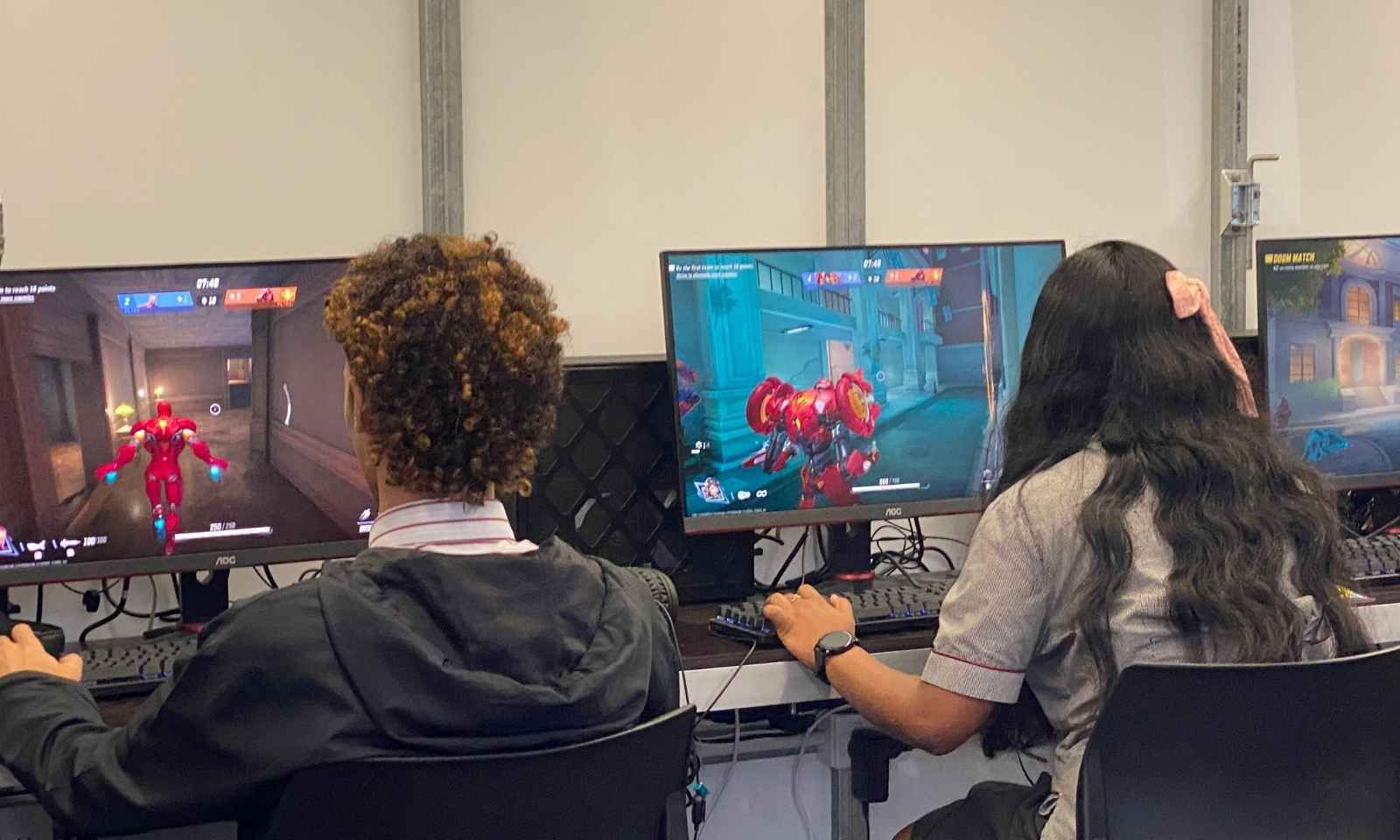

Lead Holographer at Ideas at Work Ltd, Karl Schodt, presents holography technology to attendees.
Photo/PMN News/Aui’a Vaimaila Leatinu’u
South Auckland event opens tech industry door for Pacific youth
At Tech Week’s “South Auckland to the Tech World” event, Pacific youth engage with holography, AI, and digital design - the future of technology.


Time for an Indigenous State of Origin? The All Stars game shows who really powers the NRL



Asian Development Bank expands Pacific footprint with Suva hub and new PIF agreement

Time for an Indigenous State of Origin? The All Stars game shows who really powers the NRL


A South Auckland event - Tech Week - aims to level the technology industry for Pacific youth, bringing future pathways through hands-on tech experiences and community.
“South Auckland to the Tech World”, organised by The Cause Collective’s (TCC) South Auckland Creative Tech Hub (SACTH) in partnership with Spark Foundation, Apple, GameTan, and others, was held on Thursday to expose Pacific and Māori rangatahi to careers in emerging technologies.
Participants from different schools engaged in hands-on workshops, listened to guest speakers, and watched tech demonstrations, which included holography and AI tools.
Creative Lead Muliagatele Danny “Brotha D” Leaoasavai’i’ says the goal is to place 5000 South Auckland youth into the tech industry over the next decade.
“[Pacific people] are just under four per cent of the tech industry and that dial hasn't even moved for how many decades,” he says. “What upsets me is these institutes that have been in our community for decades, talk about technology, but we haven't even gone past the five per cent mark.”
He raised questions about the future of graduates and their qualifications, lamenting the disconnect between education and job opportunities. “What's happened to our graduates? To the student loans that they got out? What happened to the qualification? And where's the jobs?”
According to Leaoasavai’i, the key to addressing this issue lies in providing “pastoral care” for Pacific youth and exposing school leavers to different fields within technology.
“The SACTH is about exposing, developing and looking at where the industry is and how our South Auckland young people can fit into this space.”
The workshop featured sessions, including hologram displays by Karl Schodt and Ali Cowley, an AI interview readiness demo by Digital DNA, and digital art tutorials by Lincoln Moa. Winston Cocker from GameTan also spoke about the importance of tech-based learning for cultural expression and resilience.

Papatoetoe student Tuilolo Hea, right, among participants at the Tech World event. Photo/PMN News/Aui’a Vaimaila Leatinu’u.
Students check in
Tuilolo Hea, a Year 13 student at Papatoetoe High School, attended out of a passion for photography and visual tech.
“I applied to the University of Auckland for fine arts and education because I want to be a teacher and come back to high school.”
Year 11 student Antrina Naveen says she was most excited about the AI and coding opportunities. “I find digital and technology so fun, and I wanted to learn about the new technology that's come, AI stuff, because that's going to be the future.
“I love doing coding, mostly Python. I'm thinking of joining Auckland University of Technology for biotech science,” she says

Papatoetoe students hit the game break hub, Antrina Naveen (right). Photo/PMN News/Aui’a Vaimaila Leatinu’u.
The industry needs to change
Leaoasavaii says the goal is not only to place young people in companies but also to help the industry understand Pacific culture. He says the workshops are held in South Auckland to engage businesses in discussions about Pacific cultural dynamics.
“Our young people don't need a change, they just need to know the pathway,” he says. “Who needs to change? It's the industry. Their thinking and how they accommodate Pasifika, that needs to change.
“We can change that by going to the industry and telling them, ‘we've got a pipeline of young Pacific people, it’ll be good for them. How about you let us teach you about Pasifika?’. When they hire a Pasifika person, they hire the family. It’s about getting employers to understand our values. “
He stressed the importance of raising awareness and improving accessibility to technology careers for Pacific youth while continuing to develop programmes grounded in holistic support.
Leaosavai’i says the SACTH team has qualified social workers, born and raised in South Auckland. He adds that these social workers may not be tech experts, but their understanding of the local youth’s well-being is crucial.
He also says the support and understanding of local workers with the same background as the youth is vital for motivating and guiding rangatahi towards success.
“If you're in West Auckland, it's no good having someone from South Auckland working there because they don't understand the young people in the community there,” he says. “It's got to be from the bottom up, from the community.
“We come from the poorest, underprivileged backgrounds. Our workers here understand the youth here because we came from here. If you understand that, then you know what the young person is going through daily. Then you can work with them in order to encourage and push them up.”